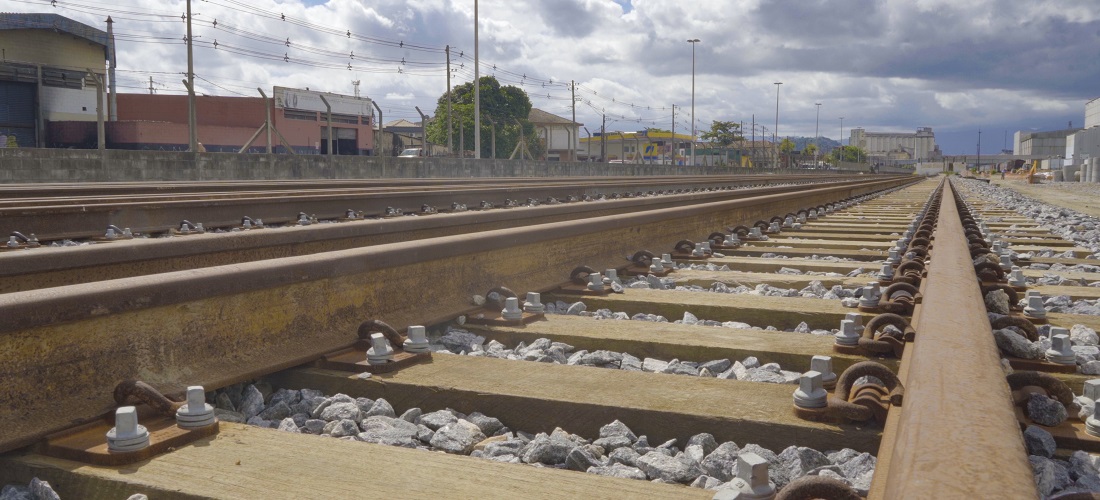
Cedro to invest R$1.8bn in Serra Azul railroad
Oct, 02, 2023 Posted by Gabriel MalheirosWeek 202339
Brazil could have its first short-line railroad, which is common in countries like the United States to handle specific products and where there is no major rail line. The project was submitted two months ago to ANTT, the sector’s regulator, under the new rules for railways in the country.
Minas Gerais-based group Cedro Participações, led by businessman Lucas Kallas, is in charge of the project. Cedro is awaiting approval from the agency to begin all the procedures to make the construction work viable, such as obtaining environmental permits and presenting the project to potential users and also to the communities in the region.
“This is an emblematic investment for iron ore mining in Minas Gerais. It brings social and environmental benefits to the region where it will be built, as well as lower freight costs for future users,” Mr. Kallas told Valor.
The businessman, who is also active in the iron mining sector in other parts of the state, began designing the “small railway” project a year ago, based on the situation of freight transport by road in the region. According to Mr. Kallas, the investment budget for the project, excluding rolling stock (locomotives and freight cars), totals R$1.8 billion.
The short line, called the Serra Azul branch, will connect to MRS Logística’s lines to the ports of Rio de Janeiro and São Paulo. The line is 32.4 kilometers long and connects the municipalities of Itaúna and São Joaquim das Bicas, crossing the mountainous complex of the Serra Azul region, in the so-called Iron Quadrangle.
Five iron ore producers operate in the region through which the branch line will pass. Currently, these companies use road trailers to transport their production to shipping yards along the MRS line and from there to ports in the state of Rio de Janeiro.
With a capacity of 25 million tonnes per year, the Serra Azul branch line will provide an alternative means of transporting ore from these mining companies: Ipê, ArcelorMittal Mineração, Musa, Comisa, and Minerita. “There are 2,500 trucks per day on the region’s highways, mainly the BR-381, loaded with 37,000 kilos, causing accidents, wear and tear on the roads, and higher freight costs than the railroad will offer,” said Mr. Kallas.
The project includes 1.6-meter track gauge, the same as the MRS. There will be five trains of 132 freight cars each. Each car can carry 100 tonnes. According to Cedro, each train accounts for 471 trucks. The construction period, once approved by all parties involved, will be 24 months.
From an environmental point of view, according to Mr. Kallas and José Carlos Martins, a mining consultant at Cedro Participações, the short line has an advantage over road transport in terms of greenhouse gas (GHG) emissions. According to the company’s studies, the average transport distance will be reduced to 30 km from 50 km. “Since the railroad emits one-third of what trucks do, the combined effect could reduce CO2 emissions by up to 50,000 tonnes per year. That’s more than 70% of current emissions,” said Mr. Martins.
“The project has a lot of merit. There was a big call from the National Mining Agency (ANM) to reduce the impact of trucks in the Iron Quadrangle region,” said Mr. Martins. According to him, small-scale mining was born where there was ore, rather than integrated logistics, and it has been growing. “The big advantage is that the branch line is integrated into the logistics flow of the main railroad and costs less than the road,” he added.
“It’s a way of increasing production. Small mining companies have become medium-sized and even large companies and need logistics at a more competitive cost. It now accounts for 40% of total costs. The big ones were born integrated,” said Mr. Kallas.
According to the businessman, the construction work will be financed with its own resources and part of the funds will be raised through the issuance of a tax-exempt infrastructure bond. “The volume of cargo makes it possible to securitize, so it makes sense from an economic-financial and long-term point of view,” said Mr. Martins.
To make it possible to collect ore from the region, conveyor belts are planned from the branch line to the mines – “to minimize the social and environmental impact” – and two road-rail yards that will be automated shipping warehouses along the short line railroad.
An important step after the ANTT approves the line, said Mr. Kallas, will be a broad debate involving the Ministry of Transportation, the Minas Gerais government, environmental agencies, municipalities along the short line route, communities and potential clients (mining companies, which a priori will see a big reduction in operating costs), and MRS Logística itself.
According to the group, 1,000 direct jobs and 3,000 indirect jobs will be created on site. In operation, up to 400.
Source: Valor Econômico
Click here to access the original news report: https://valor.globo.com/empresas/noticia/2023/10/02/grupo-cedro-planeja-investir-r-18-bi-em-ferrovia-na-serra-azul.ghtml
-
Ports and Terminals
Jan, 03, 2025
0
Amazon Boosts Grain Exports with the Construction of 27 Grain Barges and Port Modernization
-
Vessel Calls
Jul, 18, 2022
0
Containership calls at Brazilian ports fall 10.11% in June year-on-year
-
Grains
Feb, 02, 2023
0
European Union announces the withdrawal of requirements for the official certification for the entry of brazilian peanuts
-
Shipping
Jul, 16, 2024
0
Global liners flock to Mexico



